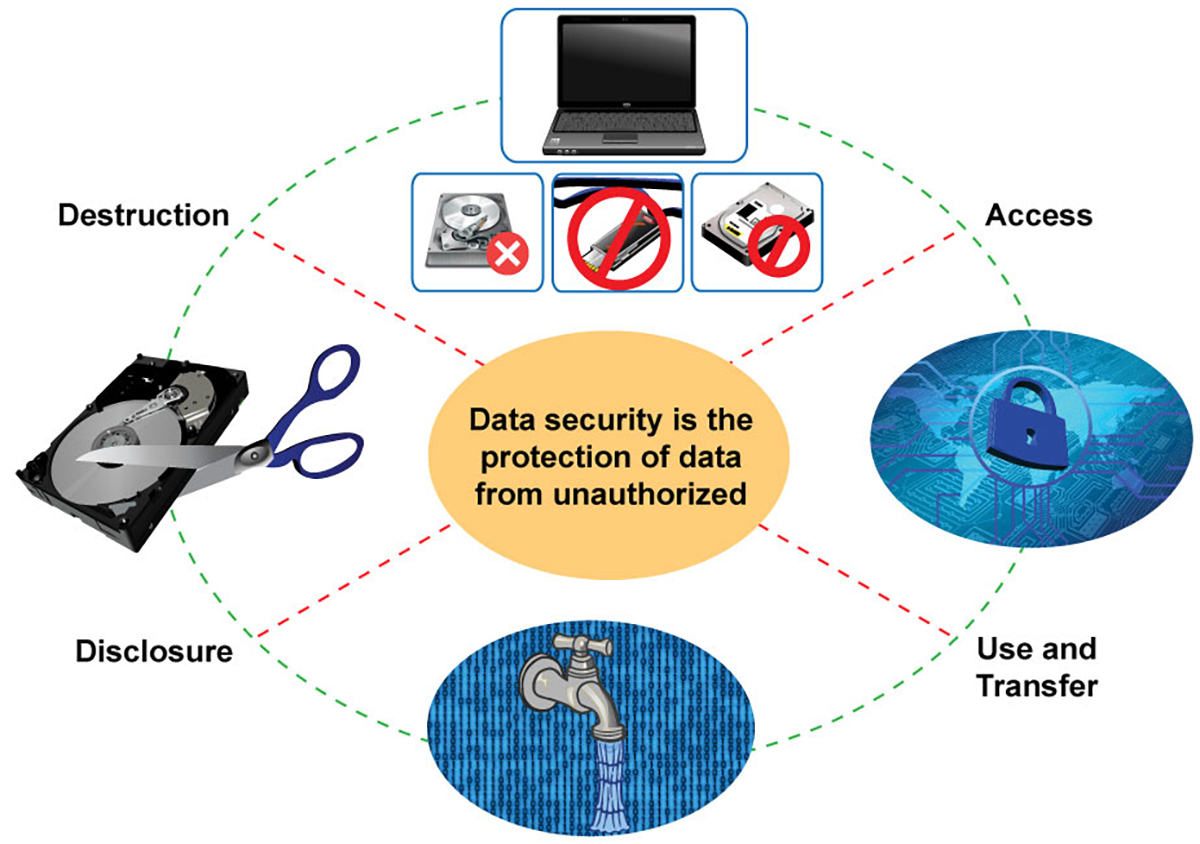The Necessary Nature of Data Damage in Upholding Computer Protection Providers and Protecting Versus Unauthorized Accessibility
In a period where data violations and identification theft are progressively widespread, the relevance of effective information devastation can not be overemphasized. Different approaches, from data cleaning to physical devastation, offer as vital safeguards versus unauthorized access.
Relevance of Information Destruction
In a significantly digital globe, the significance of data devastation can not be overemphasized. As companies generate huge quantities of delicate info, the prospective effects of stopping working to correctly dispose and handle of that information become progressively severe. Information breaches, identification theft, and business reconnaissance pose considerable hazards, underscoring the requirement of efficient data damage methods.

Moreover, as technology progresses, so too do the techniques through which destructive stars seek to make use of sensitive info. Organizations needs to remain aggressive and alert in their information damage strategies to secure versus these progressing hazards. By prioritizing data destruction, firms not only secure their assets however also foster trust fund among customers and stakeholders, demonstrating a commitment to responsible information administration and safety practices.
Approaches of Effective Data Damage
To guarantee the total and irreversible damage of sensitive information, organizations can utilize a range of reliable approaches tailored to their particular needs. One of one of the most common methods is information cleaning, which includes utilizing specialized software program to overwrite existing information several times, making healing virtually difficult. This is specifically useful for solid-state drives and difficult drives, where typical removal methods are poor.
An additional efficient approach is degaussing, which makes use of strong electromagnetic fields to disrupt the magnetic domains on storage space media, providing the data irretrievable. This method is particularly fit for magnetic storage space gadgets, such as disk drive and hard disks.
Physical destruction is also a sensible choice, including the shredding, crushing, or incineration of storage gadgets. This technique assurances that information can not be recovered, making it ideal for organizations dealing with very sensitive details.

Compliance With Data Security Laws
Organizations must not just concentrate on efficient data damage methods but additionally ensure compliance with data security policies that control just how delicate details is managed and thrown away. Adhering to these laws is necessary for preserving and guarding personal data client count on. Laws such as the General Information Defense Guideline (GDPR) in the European Union and the Health Insurance Policy Transportability and Responsibility Act (HIPAA) in the United States impose stringent pop over here standards on information monitoring, which consist of needs for the secure disposal of delicate information.
To attain compliance, companies must implement comprehensive information devastation policies that align with these lawful structures. This includes determining data that calls for devastation, developing methods for safe and secure methodsâEUR" such as shredding physical media or utilizing software program that satisfies market requirements for information wipingâEUR" and preserving detailed documents of destruction tasks. Regular audits ought to be conducted to ensure adherence to these plans and to identify any possible locations for improvement.
Failure to follow data protection regulations can result in substantial lawful ramifications, consisting of large penalties and damages to a company's credibility. Integrating compliance right into information damage practices is not just a legal obligation but additionally a vital element of a robust details safety strategy.
Repercussions of Poor Data Handling
Poor data handling can cause serious consequences that expand past immediate operational obstacles. Organizations may encounter significant monetary losses because of data breaches, which commonly lead to expensive remediation initiatives, legal charges, and regulative fines. These economic implications can prevent and strain sources growth, ultimately affecting a company's lower line.
Additionally, poor information handling can drastically harm a company's reputation. Consumers, companions, and stakeholders might shed count on an entity that fails to shield sensitive info, bring about decreased customer commitment and possible loss of service opportunities. This erosion of trust can take years to reconstruct, if it can be restored at all.
Additionally, organizations could deal with legal ramifications arising from non-compliance with click this site data defense regulations. Such offenses might cause fines and investigations, compounding the economic problem and additional staining the company's image.
In the realm of cybersecurity, inadequate information monitoring practices can create vulnerabilities that make systems more susceptible to unapproved accessibility and cyberattacks. Ultimately, these consequences emphasize the essential relevance of carrying out durable data managing treatments to safeguard delicate information and maintain business stability.
Finest Practices for Secure Information Disposal


First of all, information must be identified according to its level of sensitivity. Delicate information calls for more strenuous disposal approaches, such as shredding physical records and utilizing innovative software application for digital information cleaning. Employing certified information destruction services makes sure conformity with industry guidelines and requirements.
Second of all, organizations need to apply an information disposal plan that mandates regular audits. This plan must lay out the procedures for information retention and destruction, making certain that outdated information is gotten rid of quickly and firmly. Training workers on these methods is necessary to cultivating a culture of security understanding.
Last but not least, keeping comprehensive documents of disposed information improves accountability and supplies a clear audit path. This documentation ought to include the kind of information damaged, the technique utilized, and the day of disposal.
Final Thought
To conclude, the important of efficient information damage appears in its duty in enhancing computer system safety and security solutions and alleviating unauthorized gain access to dangers. Taking on durable methods such as information wiping, degaussing, and physical destruction, alongside conformity with policies like GDPR and HIPAA, is weblink essential for protecting delicate information. Neglecting appropriate information disposal techniques can result in extreme effects, consisting of data breaches and lawful consequences. Implementing ideal techniques in protected data disposal inevitably strengthens business integrity and client count on.
In a period where data violations and identity theft are progressively common, the value of efficient data damage can not be overstated. data destruction. Information violations, identity theft, and corporate espionage position significant hazards, highlighting the need of efficient information damage methods
Compliance with regulations such as GDPR and HIPAA requireds that organizations carry out strict data security measures, including the secure devastation of data at the end of its lifecycle.
By focusing on data devastation, business not just protect their properties however likewise foster trust amongst clients and stakeholders, demonstrating a dedication to accountable data administration and security techniques.
Organizations should not just concentrate on reliable information damage approaches however likewise ensure conformity with information protection laws that control just how delicate info is managed and disposed of.